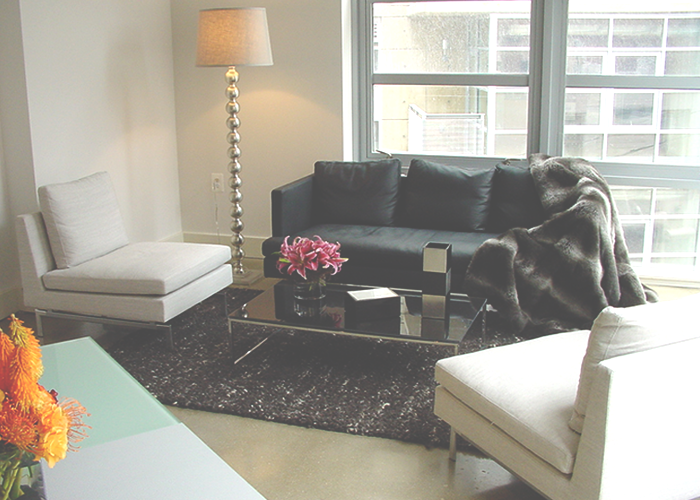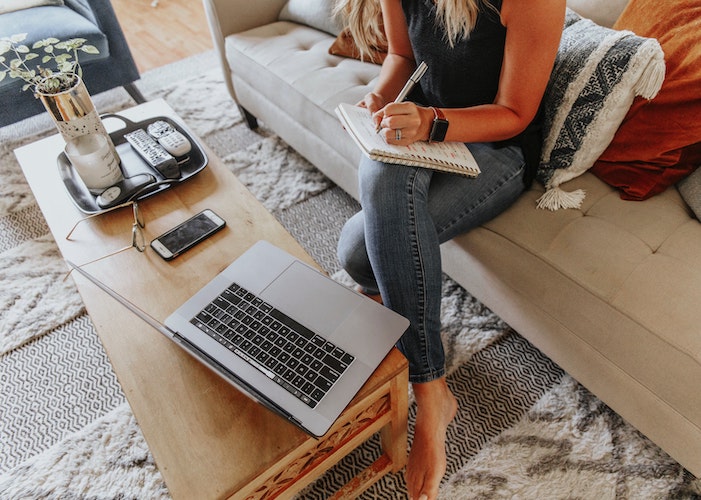10 Things You Need To Do Before You Can Think Of Buying A Home
Buying a home is an intense process, especially for first-timers. Since buying my own home in July 2013, I’ve been compiling all of my knowledge, so that other first-time buyers may have a resource that I wish I’d had. When I started looking for my home, the details of my search, the research that came along with it, and the precision in which I examined neighbors was exhausting. House hunting is a daunting task and as someone who bought a fixer-upper, the tale of my home ownership has been a bumpy road, but one that I’m ultimately very proud of. Buying a home in my 20s was challenging, but it was also a huge step in the right direction for my financial future.
If you’re considering taking this step, below are the 10 things to do before you buy your first home. Some of these are common best practices, and others are from my own experiences.
1. Build a wish list.
Everyone has a wish list for what they want in a home, whether you are currently looking, in a home already, or still renting and compiling a list of your “must haves” for the future. I’ve been making a list in my head since I was 10, and even though I own a home currently, I still think about what features I’d like to have in the future. Obviously, if you watch enough house hunters you’ll know that wish lists don’t line up with budgets most of the time, but it is still good to have a rough idea of what you’d like before you aggressively begin to search. A wish list will also help an agent find homes best suited to your needs.
2. Do a drive-by.
Before you make an appointment to physically see a home, leverage the Internet to do a little bit of detective work. See if any photos are available online. Those will go a long way to narrowing down your list. Then, before you ever make an appointment, do a drive-by of the home(s) you’re interested in. Do one drive-by during the day time, and then another at night for each house. Neighborhoods can look a lot different during the day, or you may notice a few issues with the home during the drive-by that weren’t noted/pictured on the internet listing. This was crucial for me, as I was able to narrow down ten homes off my initial list of 20 just by doing drive-bys.
3. Comparison shop for a competitive interest rate
Obtain quotes from at least three lenders. It’s not only smart business, but a difference in interest rates could save you thousands of dollars on what is arguably the biggest purchase you’ll ever make. Ask for mortgage broker referrals from friends and family. And get pre-qualified before you begin shopping so you know how much you can afford.
4. Bid appropriately and unemotionally
Ask your realtor to research comparable properties in your area before you make a bid. Whatever the average selling price of other homes in the area is, try to start a little bit lower in case the seller wants to negotiate (which in 99% of cases, they will because they have financial goals too).
From my own experience, a bidding war becomes more about emotions than good common sense. I ended up bidding way too much on the home I have now. I won the war, but later had to fight the bank to reduce the price after the inspection turned up a lot of damage. Sometimes I wonder how much I would have saved had I bid a bit more conservatively. Research, and doing a second tour of the home during a bidding war can help with this.
5. Budget for not-so-hidden fees
Generally everyone accepts a few expenditures as part of the home buying process: the down payment, realtor commissions, homeowner’s insurance, and the like.
But there are also lots of other fees that can be associated with buying a home, particularly if you are buying a foreclosed home, getting an FHA loan, or lumping renovation costs in with a mortgage. Here’s an example of fees I paid:
- Earnest Money ($500-$1000)
- Home Inspection ($300-500)
- Home appraisal ($4-500),
- a HUD Consultant fee (If buying a foreclosure and doing a 203k renovation loan, this is typically $4-500 paid at the outset of the renovation),
- $250 in document preparation fees to an attorney at closing
- $15 for a home buyer’s education class
- $30 in cashiers check fees and postage.
I think all told it took me $2100 just to get to closing.
6. Prepare for an appraisal
Since the housing crash of 2008, many banks have tightened their lending terms. They will no longer approve a mortgage on a home if it does not appraise for that value, no matter how much you’re willing to pay for a home, or if the home falls under the amount you’re pre-approved for. This can frustrate many buyers who fall in love with a home, but do not have the cash to cover the difference between the seller’s asking price and the appraisal.
I remember being on pins and needles during the appraisal process for my current home, but thankfully the home (after renovations) appraised for the home value + the upgrades, so I was able to get the money I needed to renovate.
7. Get (and attend) an inspection
Since you pay an inspector to do a walk through of the home and they prepare a written report of the findings, I’ve known many homeowner friends who skipped the inspection altogether. I would advise you go to the inspection. It’s being done for you. In addition to finding out if anything is wrong with the home, this is your chance to learn where the breaker box is, the water main, and all appropriate shut off valves. Plus, having the potential buyer there guarantees a more thorough inspection.(People behave differently when they’re being watched.)
8. Get your documents together
One of my friends who had purchased a home before I did remarked how ridiculous the loan underwriting process is, and how many hoops it seemed they had to jump through before they could close. She was right. And even though, yes, I am organized, it was still a pain. Here are a few of the “standard” documents you will be asked for during the underwriting process.
- Check stubs (usually for the past 30 days.
- W2’s for the last two years.
- Any additional proof of income you may have like your stock portfolio, alimony/child support whatever.
- Bank statements, usually about three months worth.
- A letter stating your employment and rental history for the past two years.
- A home buyers training seminar certificate.
- Tax returns and the transcripts which have to be ordered from the IRS.
- Copies of all of my rent checks to my current landlord.
And if you have a side hustle, or freelance or work for yourself….
- Be prepared to show copies of checks from clients in addition to your tax returns (I printed mine off of my banks website.)
- Three months of paypal statements if you earn money online.
9. Stay organized
I was able to access my files quickly and turn them over to him within a matter of hours (if not minutes) whenever my mortgage broker emailed and asked for them. Not that this sped up the processing of my loan or anything, but it did save me a lot of hassle and headache because I didn’t have to worry or search for a specific document.
I suggest you go digital immediately. I know this can be difficult for some of you to let go of, I’m a “keep a hard copy for my records” kinda gal too, but when your mortgage company is asking you for this stuff, it is way easier to point, click, and email over a PDF than to scan the document.
10. Familiarize yourself with Murphy’s Law
Murphy’s Law: Anything that can go wrong, will go wrong.
While I’m saying this a little tongue-in-cheek, I’ve never known anyone who had a 100% smooth home buying process. There are simply too many variables (money, two sets of people, real estate agents, the bank) to ensure it will be absolutely perfect. Using the tips above, doing your homework and not taking short cuts will help ease the process, but try and remember that bumps in the road are expected too.
Buying a home is stressful, but so, so worth it. Stay organized. Stay cool. And when things aren’t going your way, just remember why you wanted to buy a home in the first place.
Image via Flickr




